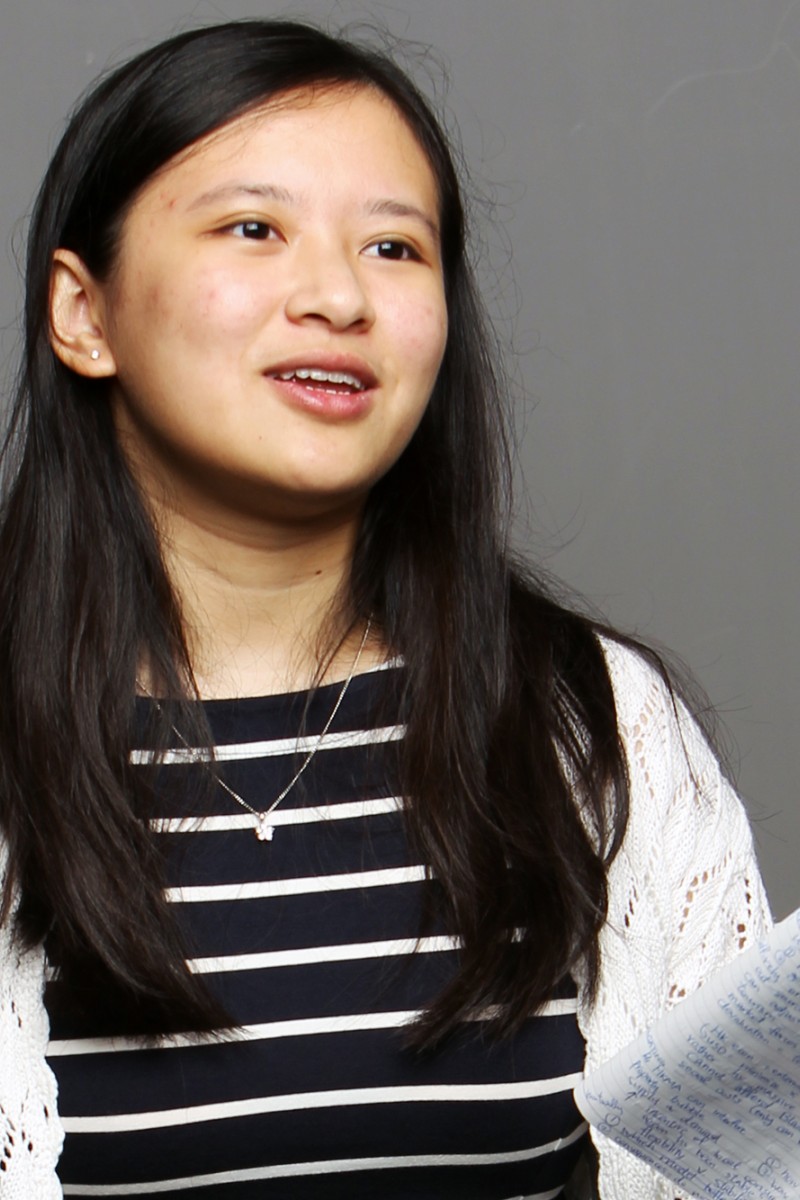 Nicole Liu won't accept low standards.
Nicole Liu won't accept low standards.Student of the Year English Linguistics winner Nicole Liu Hui-kay has a way with words.
The 17-year-old Form Six student at Diocesan Girls' School has put her skills to good use in both writing and speaking. She has competed in and judged debate tournaments, written countless essays, and edits her school newspaper. And it all comes down to a love of words and how they're used.
"Words are quite meaningful in terms of diction," Nicole says. "The difference in diction and words, in terms of their cultural background, is something that I'm really interested in."
She points out the difference in tone between inviting someone to visit a countryside cottage, versus demanding that someone come to a cabin in the woods. One is a friendly invitation for a nice, innocent vacation, and the other is more menacing, purely due to the choice of words.
The words a person uses will affect how you perceive their views - especially in arguments or debates - and it can sometimes distract you.
"It's easy to trick people into thinking you sound logical when you have a lot of big words thrown in," she says. "But personally, I don't like people who win debates that way. Words are important, but I think it's more important to look at the reasoning and the logic behind the words." To Nicole, choosing the right way to say something is important, but you still have to have something valuable to say in the first place.
Many students in Hong Kong face their English classes with the goal of simply getting through their DSE, and after that, they're done with it. But Nicole believes it shouldn't stop there. "The DSE doesn't teach you all you need to know," she says. She explains that the two minutes of speaking required to pass the English exam is a poor indicator of ability, and that students should aim higher.
"English [skill] is a thing that already exists in Hong Kong," she says. "It's not as if everybody's amazing or totally fluent, but at the very least, the younger generation can all speak a very basic level of English that includes communicating with people."
However, Nicole believes the education system should push students to improve their English, because "when the demands are lower, in some cases it causes the education standard to just reach 'enough' rather than reaching higher". This acceptance of weakness holds students back.
"English is very important. It opens a lot of doors in terms of jobs," she says. "Hong Kong is a very investment-based city, so it opens doors to jobs in multi-national corporations. Maybe they might want to send you overseas as a liaison; that's a lot of money right there. So in terms of career, English is already very important."
Those looking to improve their language abilities, Nicole says, need to break out of the typical Hong Kong mindset and actually avoid competitions.
"In competitions, because of the compressed timeframe, you don't come away with very valuable advice for your linguistic abilities," she explains. "You come away with a number, which doesn't mean anything. What does 79 mean exactly? Is that great? Is that average? Is that a pass?"
Nicole recommends workshops instead, as students get more constructive feedback, which can help them improve.
"If it's a larger group, you might not get individual feedback, but you can see other people practise and realise you have the same weakness," she says. "And when the teacher comments on it and tells them how to do better, you can also easily apply it to yourself. That type of guidance is more important than competing."
